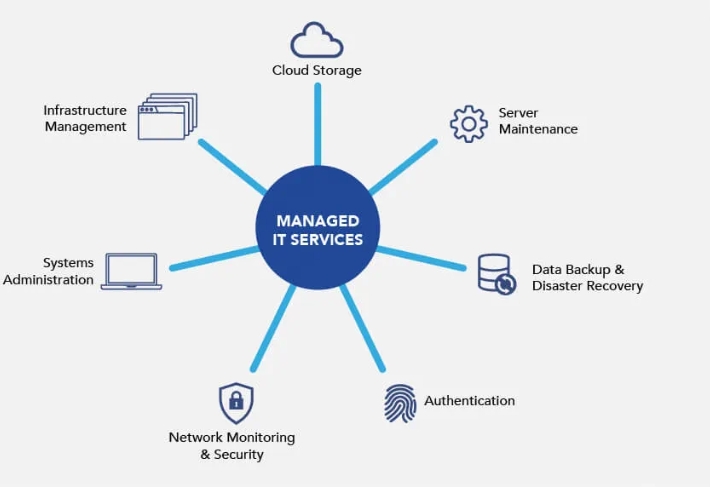What Is a VPN for Business?
Understanding VPN Technology
A Virtual Private Network (VPN) is a technology that creates a secure, encrypted connection between a user’s device and a server on the internet. This connection masks the user’s IP address and encrypts all data sent and received, ensuring that the information is safe from eavesdropping, hacking, or other malicious activities. For businesses, a VPN allows employees to securely access the company’s internal network and resources, even when working remotely.
The Importance of Security in Business Operations
Security is a top priority for businesses, particularly those that handle sensitive data such as financial records, customer information, or proprietary intellectual property. A VPN helps safeguard this data by encrypting it and routing it through secure servers, reducing the risk of data breaches and cyberattacks. By implementing a VPN, businesses can protect their communications and maintain the confidentiality and integrity of their information.
Key Benefits of a VPN for Business
Enhanced Security and Privacy
One of the primary benefits of using a VPN for business is the enhanced security it provides. By encrypting data, a VPN ensures that even if a hacker intercepts the communication, they cannot read or exploit the information. This is particularly important for businesses with remote workers who may be using unsecured public Wi-Fi networks, which are often targeted by cybercriminals.
Remote Access to Company Resources
With more employees working remotely, a VPN allows them to securely access the company’s internal network from anywhere in the world. This access enables employees to work as if they were in the office, using the same resources, tools, and applications without compromising security. This flexibility is essential for maintaining productivity and collaboration across a distributed workforce.
Cost-Effective Security Solution
Implementing a VPN for business is a cost-effective way to enhance security without the need for significant investments in hardware or infrastructure. Many VPN services offer scalable solutions that can grow with your business, allowing you to add or remove users as needed. Additionally, VPNs reduce the risk of costly data breaches, helping businesses avoid potential financial losses and reputational damage.
Choosing the Right VPN for Your Business
Key Features to Look For
When selecting a VPN for your business, it’s important to consider the features that will best meet your needs. Some key features to look for include:
- Strong Encryption Protocols: Ensure that the VPN uses advanced encryption methods, such as AES-256, to protect your data.
- No-Logs Policy: Choose a VPN provider that does not keep logs of user activity, ensuring that your company’s information remains private.
- High-Speed Connections: To avoid slowing down business operations, select a VPN that offers fast and reliable connections.
- Multiple Server Locations: A wide range of server locations allows for greater flexibility and access to global resources.
- 24/7 Customer Support: Reliable customer support is crucial in resolving any issues that may arise, ensuring uninterrupted service.
Considerations for Implementation
Before implementing a VPN for your business, consider the following factors:
- Compatibility with Existing Systems: Ensure that the VPN is compatible with your current operating systems, software, and devices.
- Scalability: Choose a VPN that can easily scale with your business as it grows, allowing you to add more users or expand to new locations.
- User Training: Provide training for employees on how to use the VPN effectively and understand the importance of maintaining security.
- Cost vs. Benefit: While cost is an important factor, it should not be the only consideration. Weigh the benefits of enhanced security and flexibility against the cost to determine the best solution for your business.
The Future of VPNs in Business
Increasing Demand for Remote Work Solutions
The rise of remote work is expected to continue, increasing the demand for secure and flexible work solutions like VPNs. As businesses adapt to this new normal, VPNs will play a crucial role in ensuring that employees can work securely from any location. The ability to maintain business continuity and protect sensitive information will be key to the success of remote work initiatives.
Integration with Other Security Tools
As cyber threats become more sophisticated, VPNs will likely be integrated with other security tools, such as firewalls, intrusion detection systems, and endpoint protection solutions. This integration will create a more comprehensive security framework, providing businesses with multiple layers of protection against cyber threats.
Advancements in VPN Technology
Advancements in VPN technology are also on the horizon, with improvements in encryption methods, faster connections, and more user-friendly interfaces. These developments will make VPNs an even more attractive option for businesses looking to enhance their security and operational flexibility.
Conclusion
A VPN for business is an essential tool in today’s digital landscape, offering enhanced security, remote access, and cost-effective solutions for companies of all sizes. By choosing the right VPN and implementing it effectively, businesses can protect their data, support remote work, and stay ahead of evolving cyber threats. As technology continues to advance, VPNs will remain a critical component of business security strategies, helping companies safeguard their operations and maintain a competitive edge.



